The Reality Chip is a unique commander available in Magic: The Gathering. It is mono-blue, so you’re only able to play blue and colorless spells in your deck. Originally released in Kamigawa: Neon Dynasty, The Reality Chip is an unorthodox commander that lets you play cards from the top of your library so long as it’s attached to a creature.
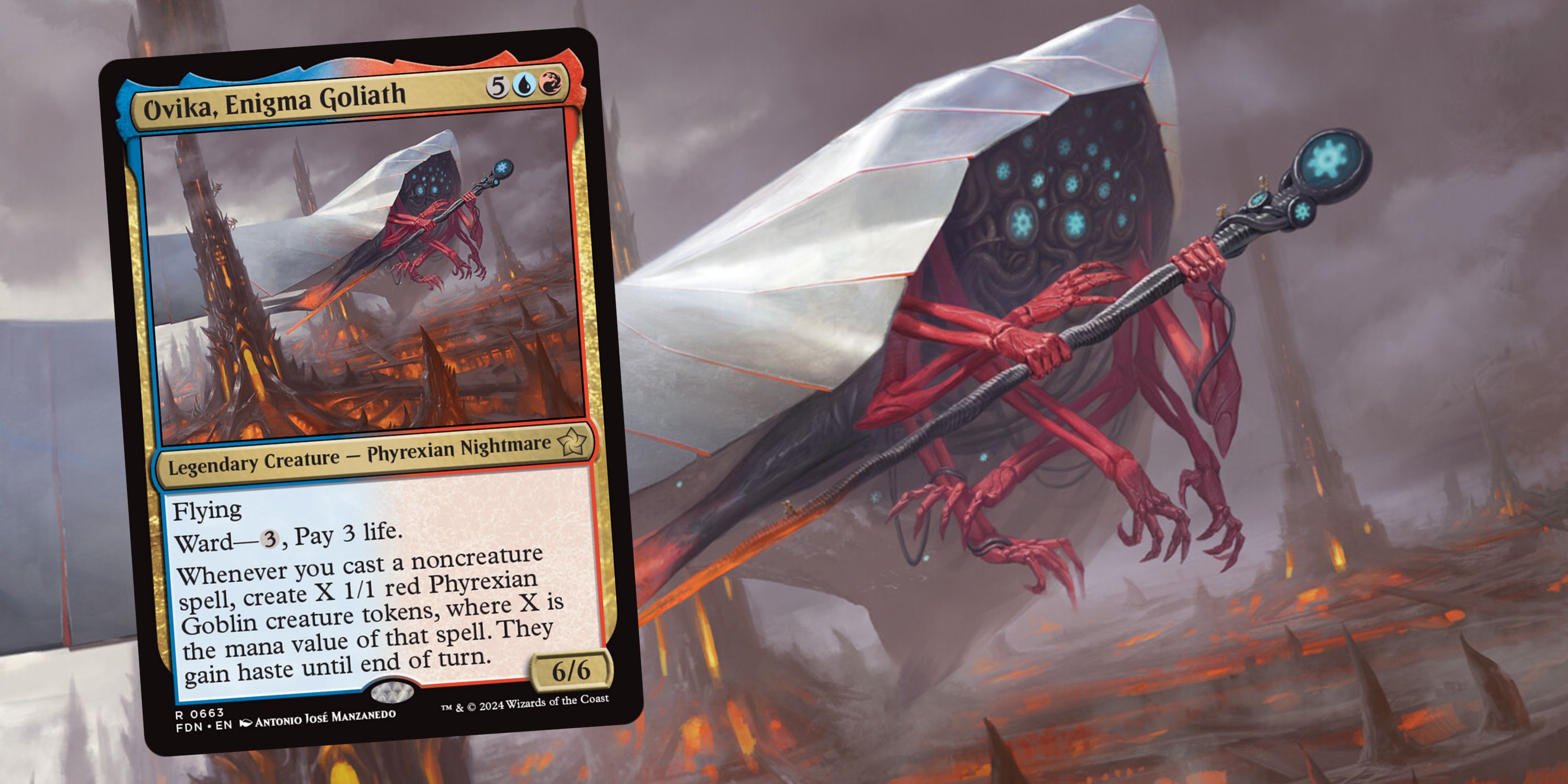
Related
Magic: The Gathering – Ovika, Enigma Goliath Commander Deck Guide
Here’s how to play the Ovika, Enigma Goliath Commander Deck in Magic: The Gathering!
The Reality Chip focuses on artifacts, as there are a ton of cards in blue that discount the cost of artifacts making it easier to play them off the top of your library. The Realty Chip is an artifact itself, letting it take advantage of the artifact support in the deck.
Decklist
|
Commander: The Reality Chip |
|||||
|---|---|---|---|---|---|
|
Artificer’s Assistant |
Chief of the Foundry |
Cyberdrive Awakener |
Etherium Sculptor |
Forensic Gadgeteer |
Foundry Inspector |
|
Hangarback Walker |
Jhoira’s Familiar |
Kappa Cannoneer |
Karn, Legacy Reforged |
Liberator, Urza’s Battlethopter |
Loyal Inventor |
|
Master of Etherium |
Memnite |
Millikin |
Ornithopter |
Ornithopter of Paradise |
Padeem, Consul of Innovation |
|
Phyrexian Metamorph |
Phyrexian Walker |
Riddlesmith |
Sai, Master Thopterist |
Sharding Sphinx |
Shimmer Myr |
|
Solemn Simulacrum |
Spellskite |
Steel Overseer |
Thought Monitor |
Twenty-Toed Toad |
Unctus, Grand Metatect |
|
Urza, Lord High Artificer |
Vedalken Archmage |
Vedalken Engineer |
Whirler Rogue |
Fabricate |
Thoughtcast |
|
An Offer You Can’t Refuse |
Arcane Denial |
Brainstorm |
Counterspell |
Desynchronization |
Disruption Protocol |
|
Negate |
Whir of Invention |
Arcane Signet |
Cloud Key |
Encroaching Myscosynth |
Everflowing Chalice |
|
Fellwar Stone |
Mind Stone |
Sensei’s Divining Top |
Simulacrum Synthesizer |
Sol Ring |
Tamiyo’s Logbook |
|
The Millennium Calender |
Thought Vessel |
Unwinding Clock |
Artificer Class |
Efficient Construction |
Fortune Teller’s Talent |
|
Mechanized Production |
Mirrodin Besieged |
Propaganda |
Thopter Spy Network |
Academy Ruins |
Archway of Innovation |
|
Buried Ruin |
Castle Vantress |
Darksteel Citadel |
x21 Island |
Myriad Landscape |
Mystic Sanctuary |
|
Reliquary Tower |
Rivendell |
Scene of the Crime |
Seat of the Synod |
The Mycosynth Gardens |
War Room |
The decklist
consists of 35 creatures, two sorceries, eight instants, 13 artifacts, seven enchantments,
and
34 lands
. Nearly every creature in the deck is an artifact creature, or a creature that has an effect relating to artifacts.
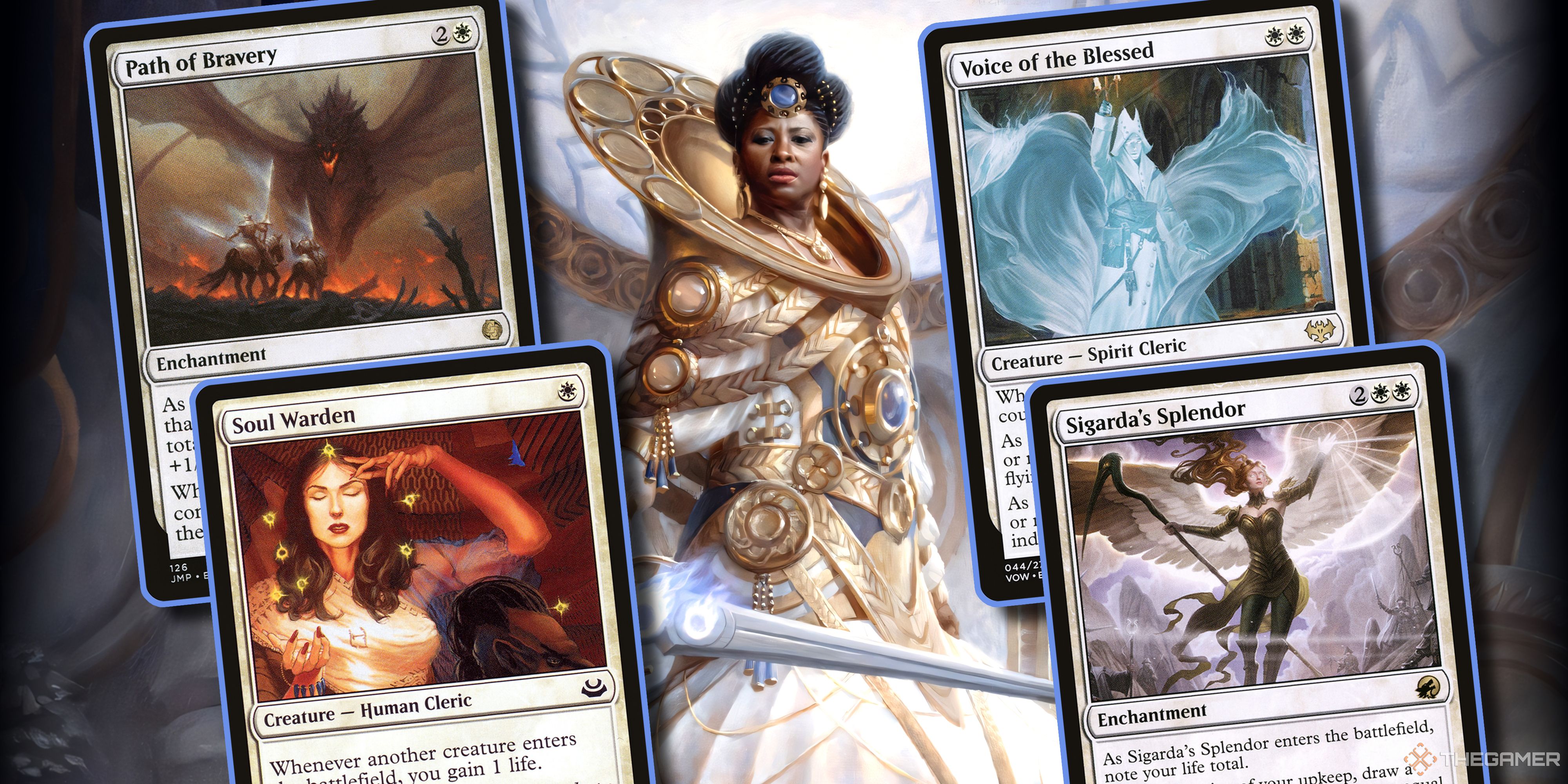
Related
Magic: The Gathering – Linden, The Steadfast Queen Commander Deck Guide
Life finds a way with Linden, the Steadfast Queen.
Key Cards
The Reality Chip
The commander for the deck, The Reality Chip is an important key in making sure you cast as many spells as possible. You always want The Reality Chip reconfigured onto a creature, as it does nothing on its own but lets you look at the top of your library otherwise.
If The Reality Chip is reconfigured onto a creature and that creature gets removed or a board wipe occurs, the Reality Chip will go back to being a creature.
Thanks to its low casting cost, you can get The Reality Chip on the battlefield very early. Reconfiguring costs a bit more, but still small enough to be easy to do during the early stages of the game. You do need a creature to reconfigure to, though, and it’s best to wait to cast until you have multiple options of creatures to equip.
Unwinding Clock
Unwinding Clock is one of the best artifacts in the entire deck. It untaps all artifacts during everyone’s untap, letting you constantly re-use your best effects that require artifacts to be tapped.
Since most of your creatures are artifact creatures, you can attack with them freely and still have blockers since they’ll untap. Unwinding Clock also lets you untap your mana rocks so you can have mana for counterspells when your opponents’ turns are happening.
Steel Overseer
Steel Overseer is the card that turns all your weak artifacts into massive threats. By tapping it, you put a +1/+1 counter on all artifact creatures you control. Most of your artifact creatures start as 1/1s, so stacking them up with counters will turn them into powerful attackers and blockers.
Steel Overseer pairs especially well with Unwinding Clock, since you can use its effect four times in a full turn cycle, giving four +1/+1 counters to all your creatures by the time your next turn starts.
Urza, Lord High Artificer
Urza, Lord High Artificer is one of the best blue creatures ever printed, and it’s especially strong in a Reality Chip deck. It turns all your artifacts into mana dorks that can tap for a blue mana. Since blue struggles with ramp, this is especially useful in ensuring you can always cast spells off the top of your library.
If you have a land you can’t play on the top of your library, you can use Urza’s ability. This will shuffle your library and exile the top card, potentially putting a card you can play on the top.
Urza lets you pay five to cast the top card of your library for free after shuffling it. The card is exiled, but you can cast it at any point during the turn you use Urza’s effect. You’ll have a ton of artifacts, so the Construct Urza creates will wind up with high stats too.
How To Play The Deck
A Reality Chip Commander deck is playing a ton of artifacts and taking advantage of the plethora of artifact support cards. While being a mono-color deck can be a downside (especially for a commander with a grounded effect like The Reality Chip is), blue is one of the primary colors for artifacts, allowing you to play many of the best artifact-focused cards in the game.
There are multiple ways to discount artifact spells, including Etherium Sculptor, Foundry Inspector, Jhoira’s Familiar, and Cloud Key, all of which make artifacts one less mana to cast. Most of the cards in the deck are either colorless, or only have one colored mana requirement to fully take advantage of these discounts.
If you have multiple permanents that discount artifacts, the effects will stack. So if you have three of them, your artifact spells will be discounted by three mana instead of just one.
Ramping can be a struggle for blue, but there are a few ways to counteract that in the deck. Karn, Legacy Reforged adds a colorless mana for each artifact you control, but can only be used on artifacts. Silver Myr and Ornithopter of Paradise are more traditional mana dorks, tapping themselves to add mana, and Urza, Lord High Artificer can tap artifacts for blue mana.
The primary win condition of the deck is winning through combat. You want to amass an army of artifact creatures, done through casting them or creating tokens. Alternatively, you can win with Twenty-Toed Toad which automatically wins the game if you have twenty or more cards in your hand or it has twenty or more counters on it.
There is also Mechanized Production, which wins the game when you control eight or more artifacts with the same name at your upkeep. This includes tokens, making Mechanized Production an easy win condition to achieve.
The biggest flaw of the deck is its slowness. Once you have enough mana, you can quickly start snowballing by casting spells off the top of your library once you reconfigure The Reality Chip. However, there isn’t a lot the deck can do in the early game.
You can get a few small creatures out quickly (including your commander), but it’ll take a while before you start seeing the payoffs for them. There’s a lot of draw power in the deck, so you can get to your win conditions a lot quicker to help mitigate this downside.
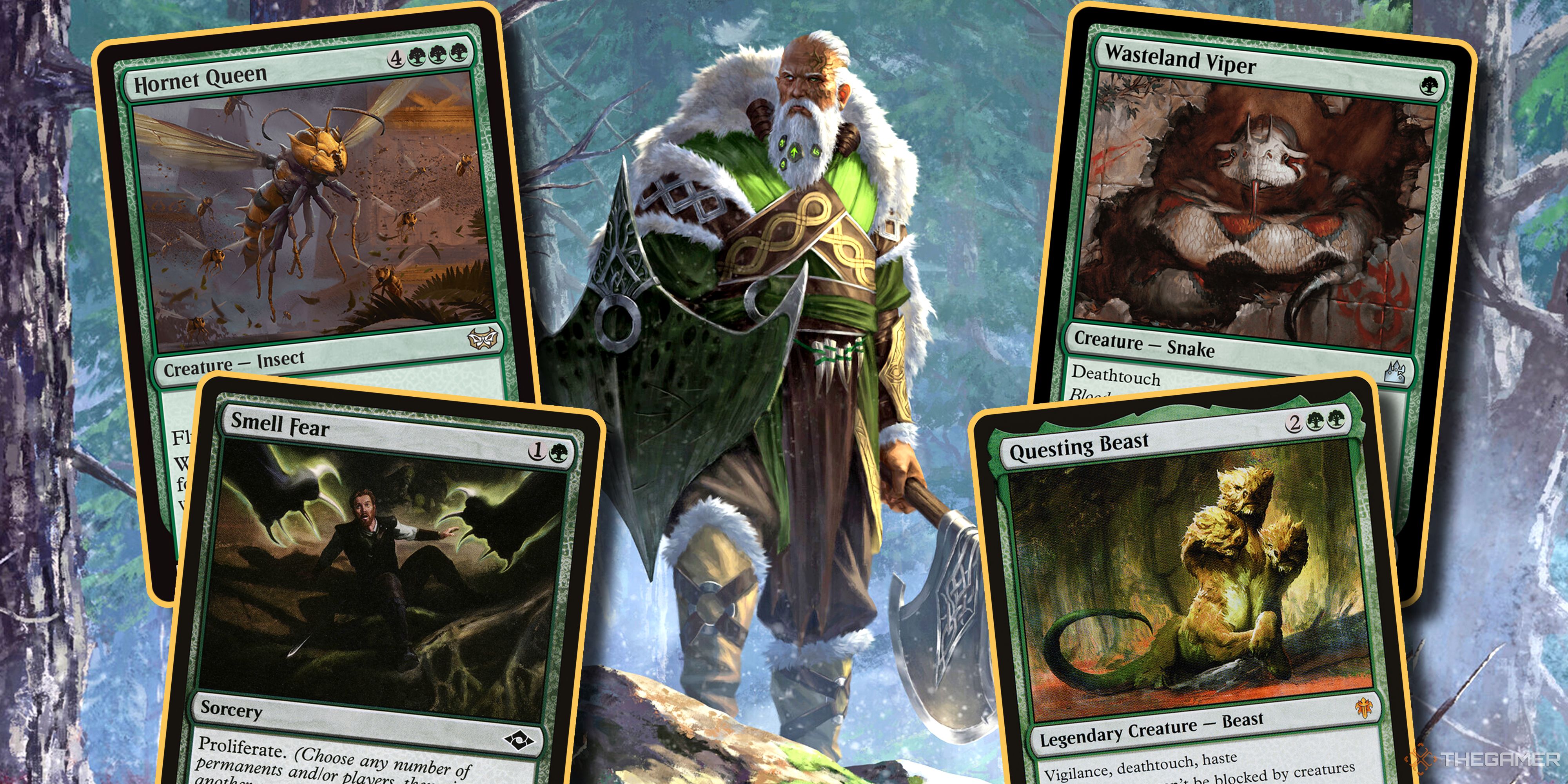
Next
Magic: The Gathering – Fynn, The Fangbearer Commander Deck Guide
Inject a bit of venom into your Commander games with Fynn, the Fangbearer.
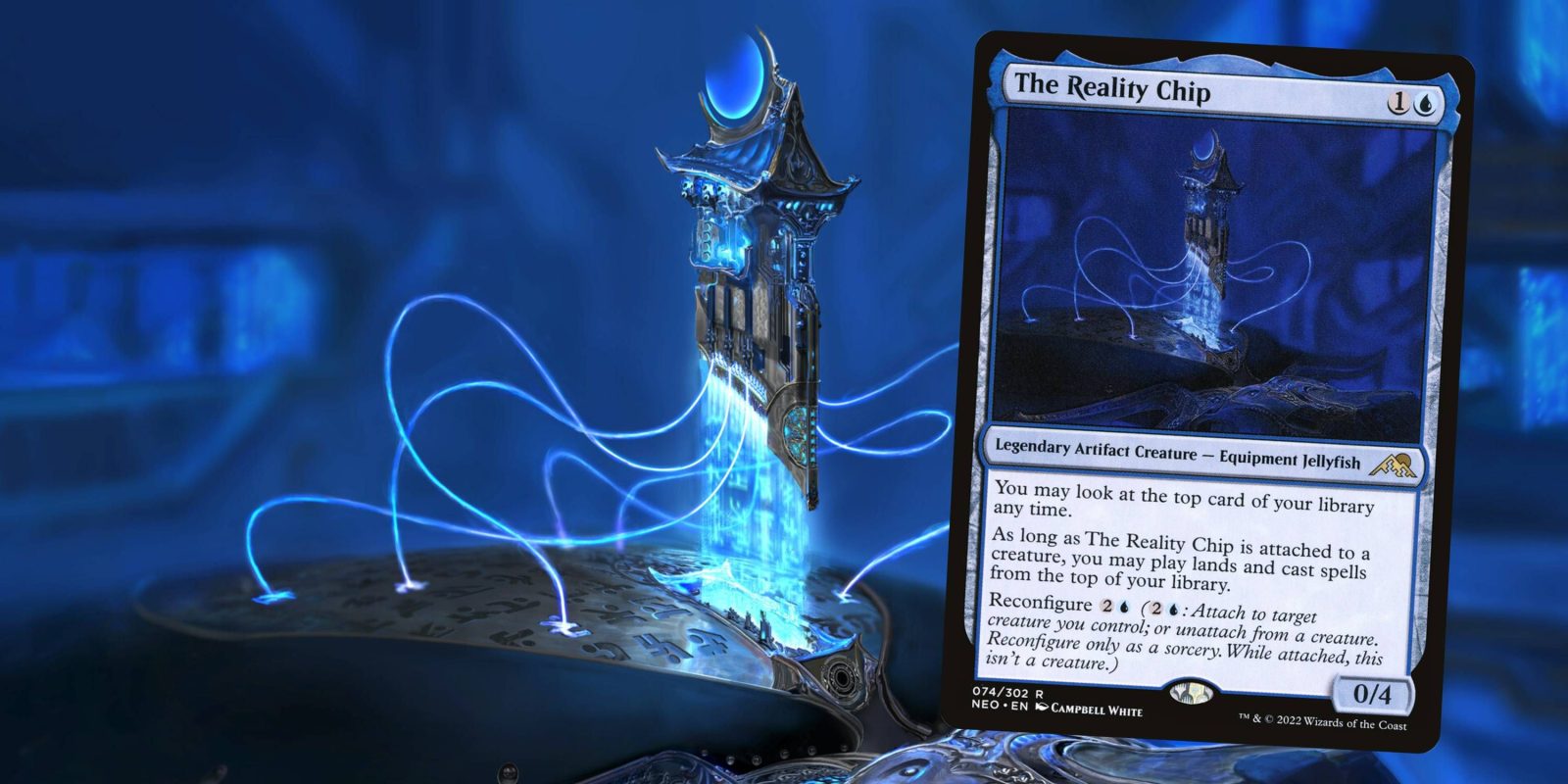

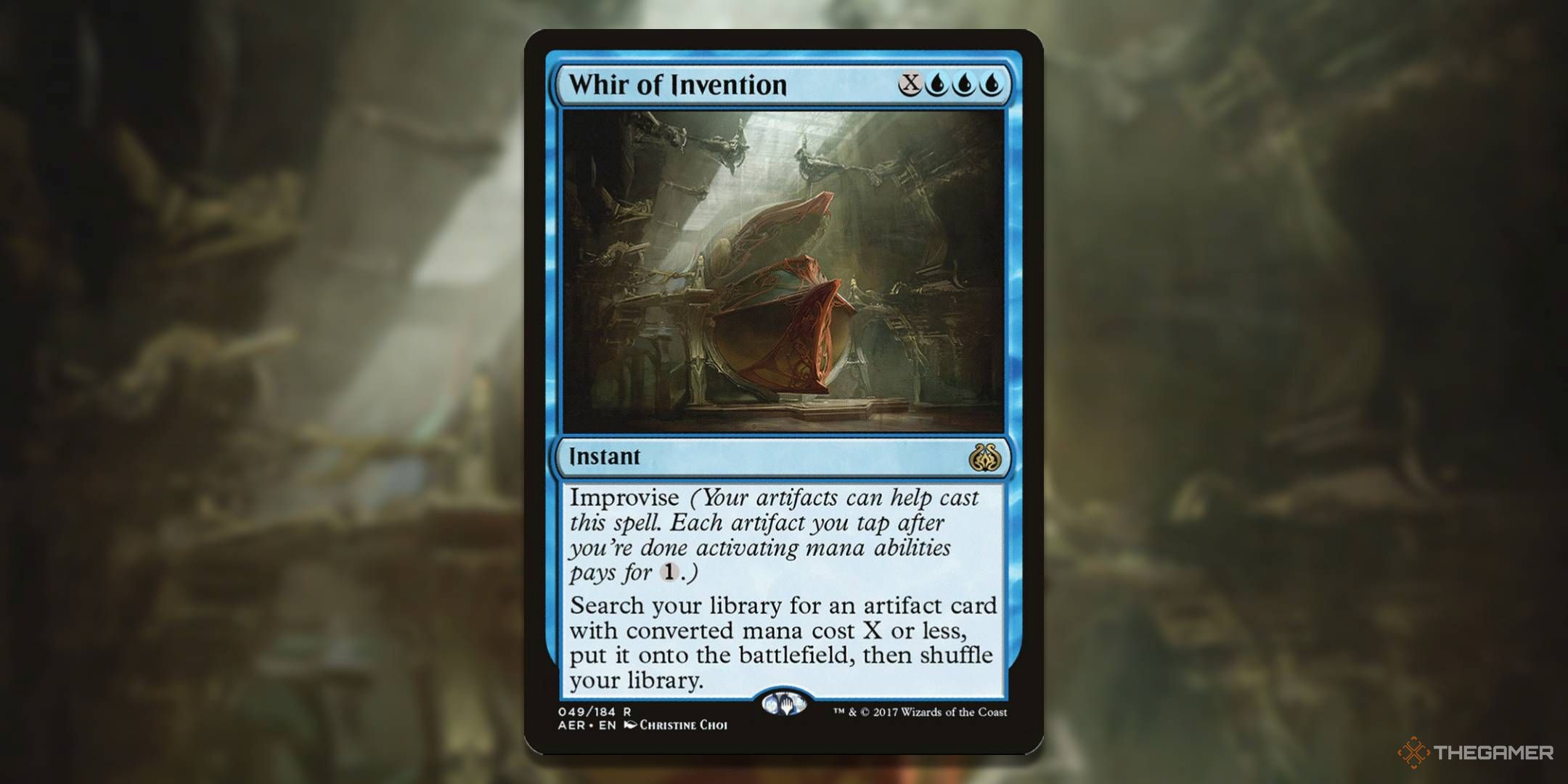
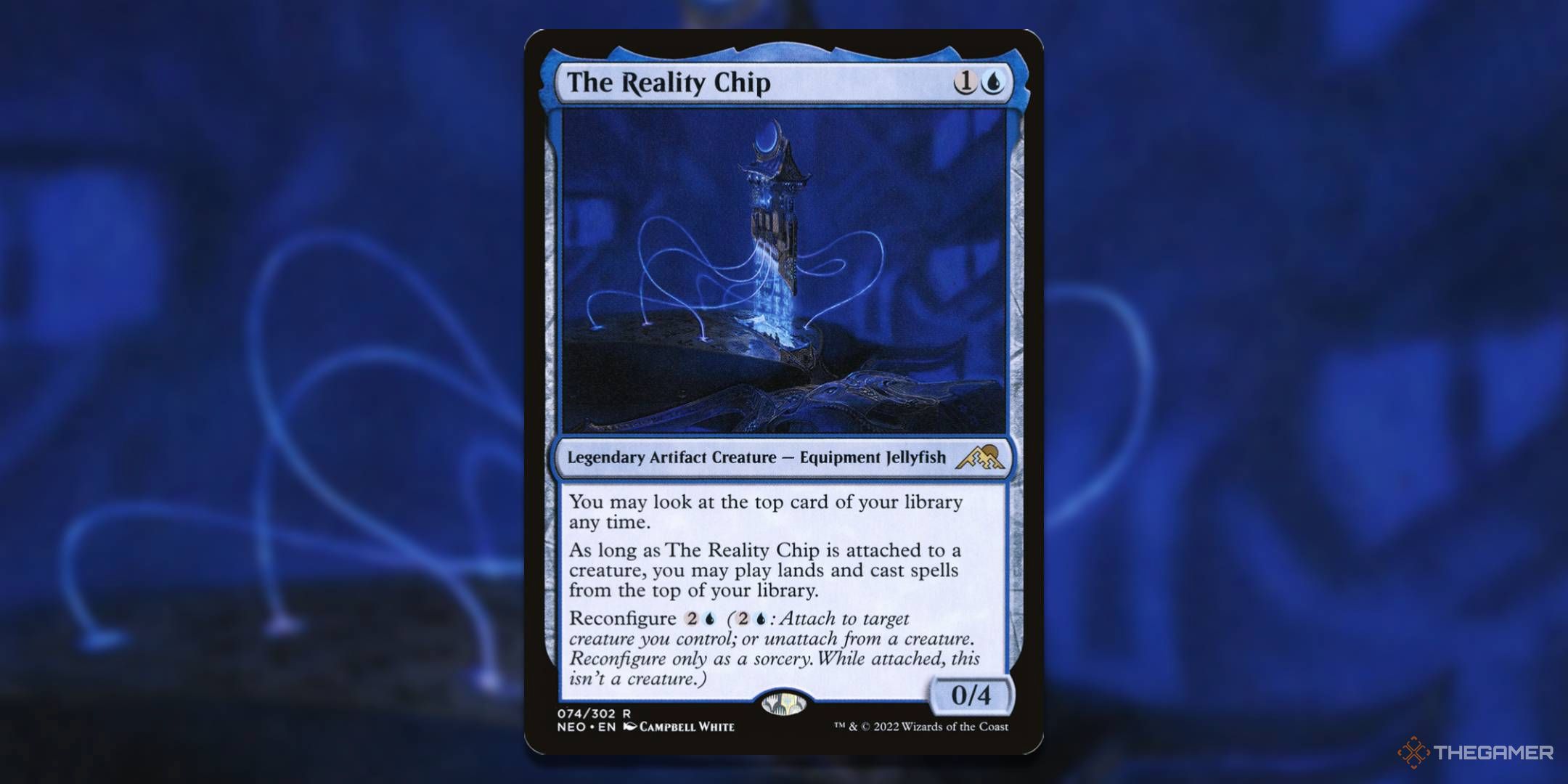
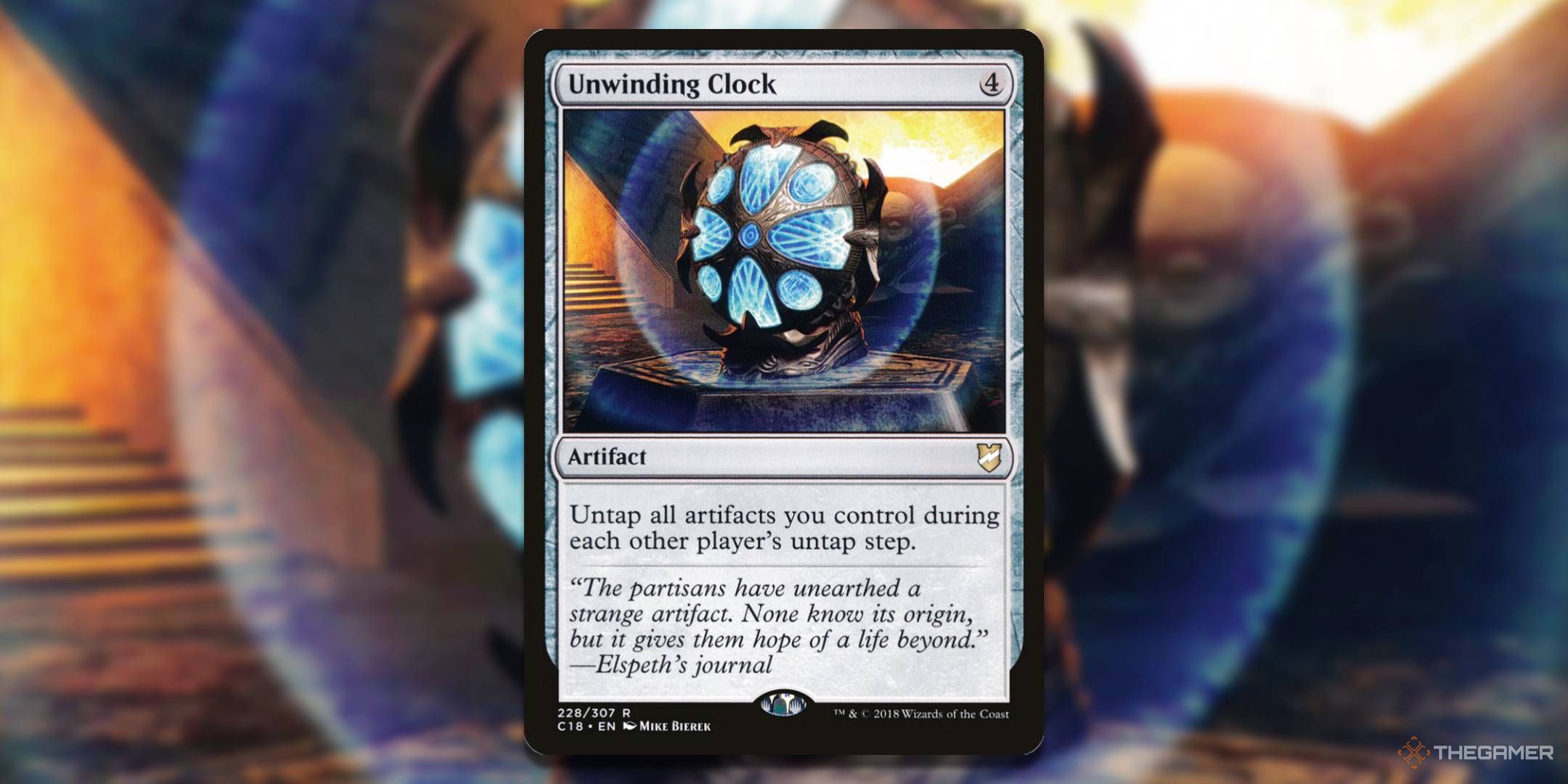
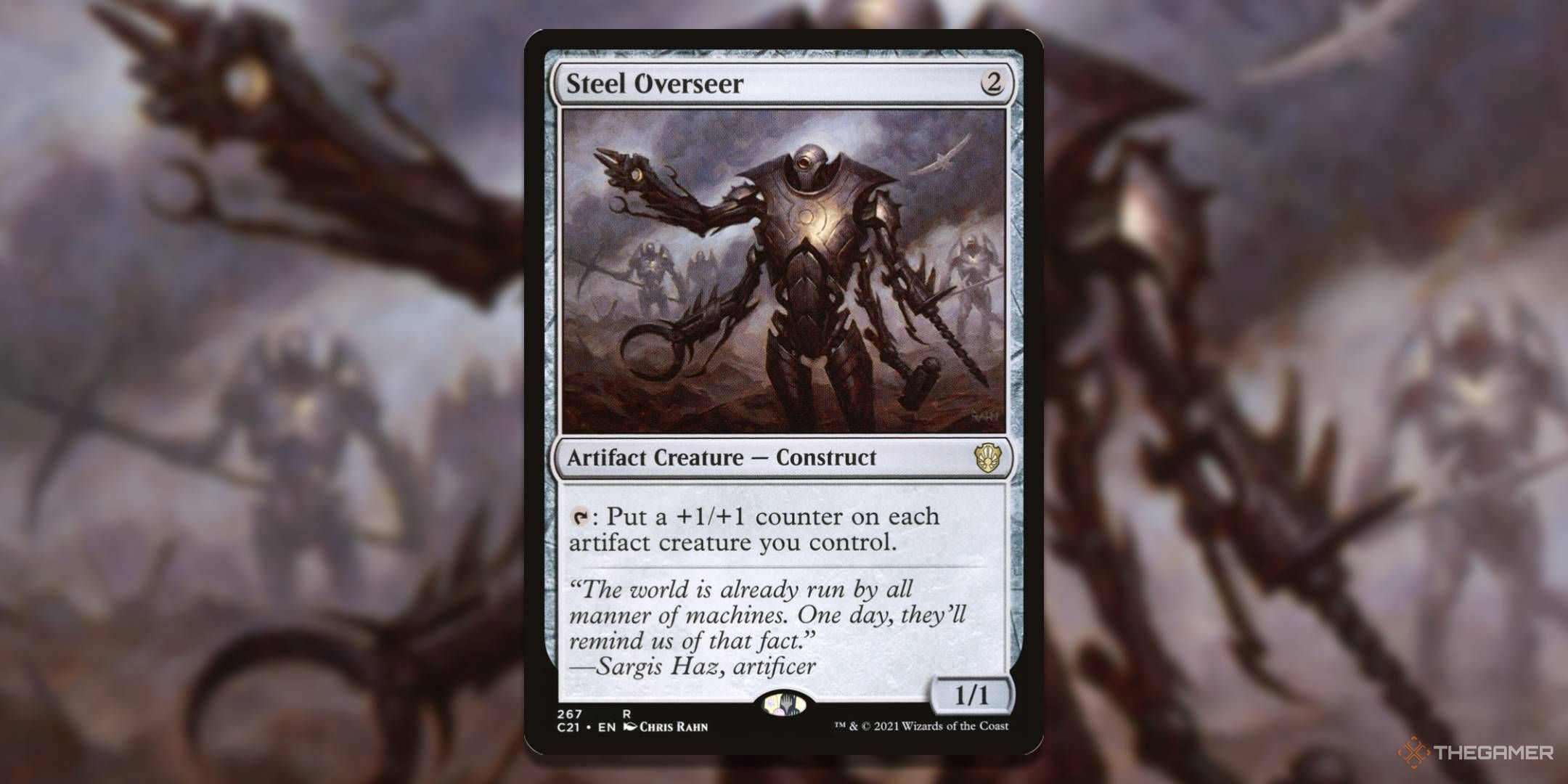
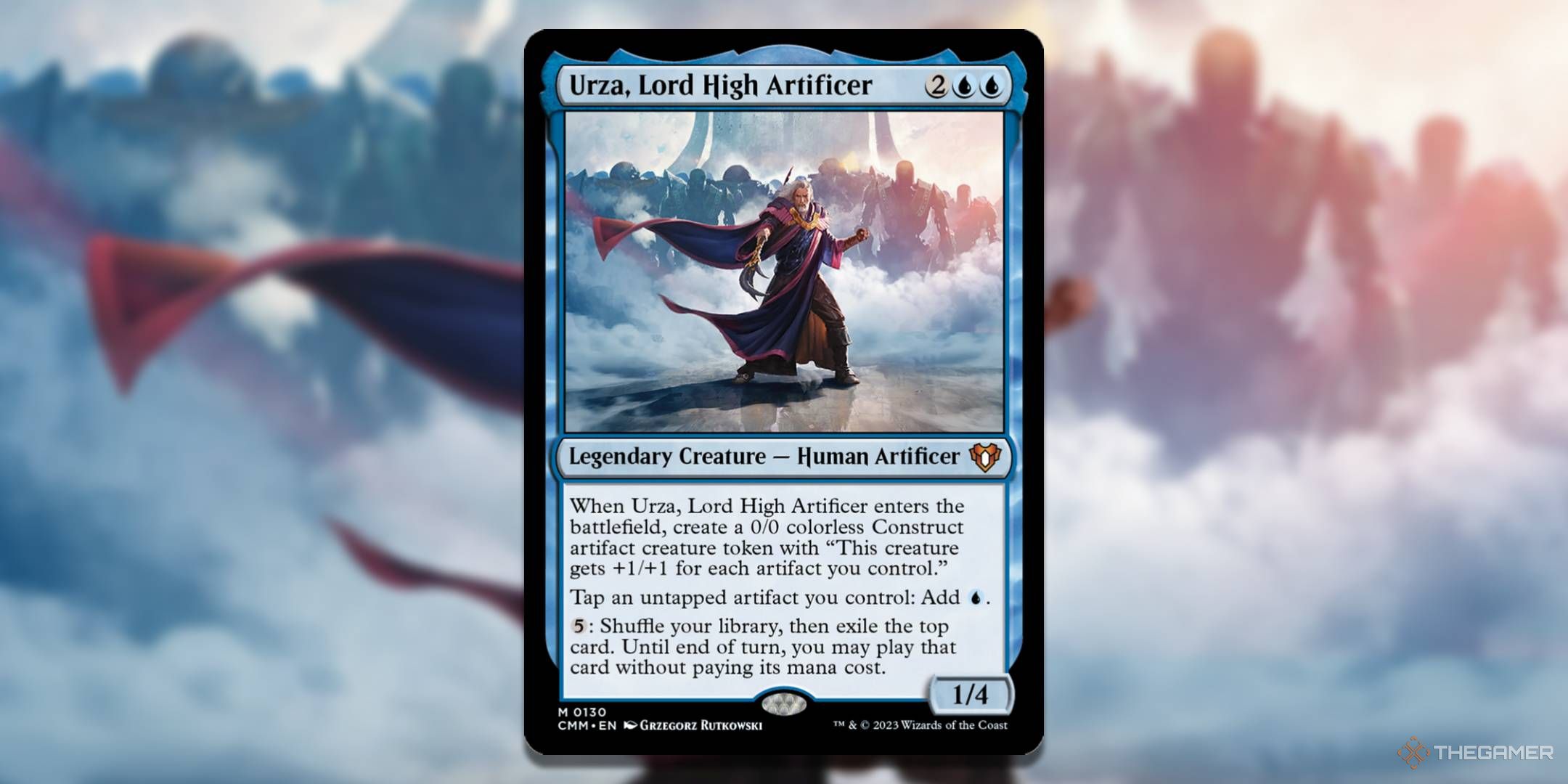
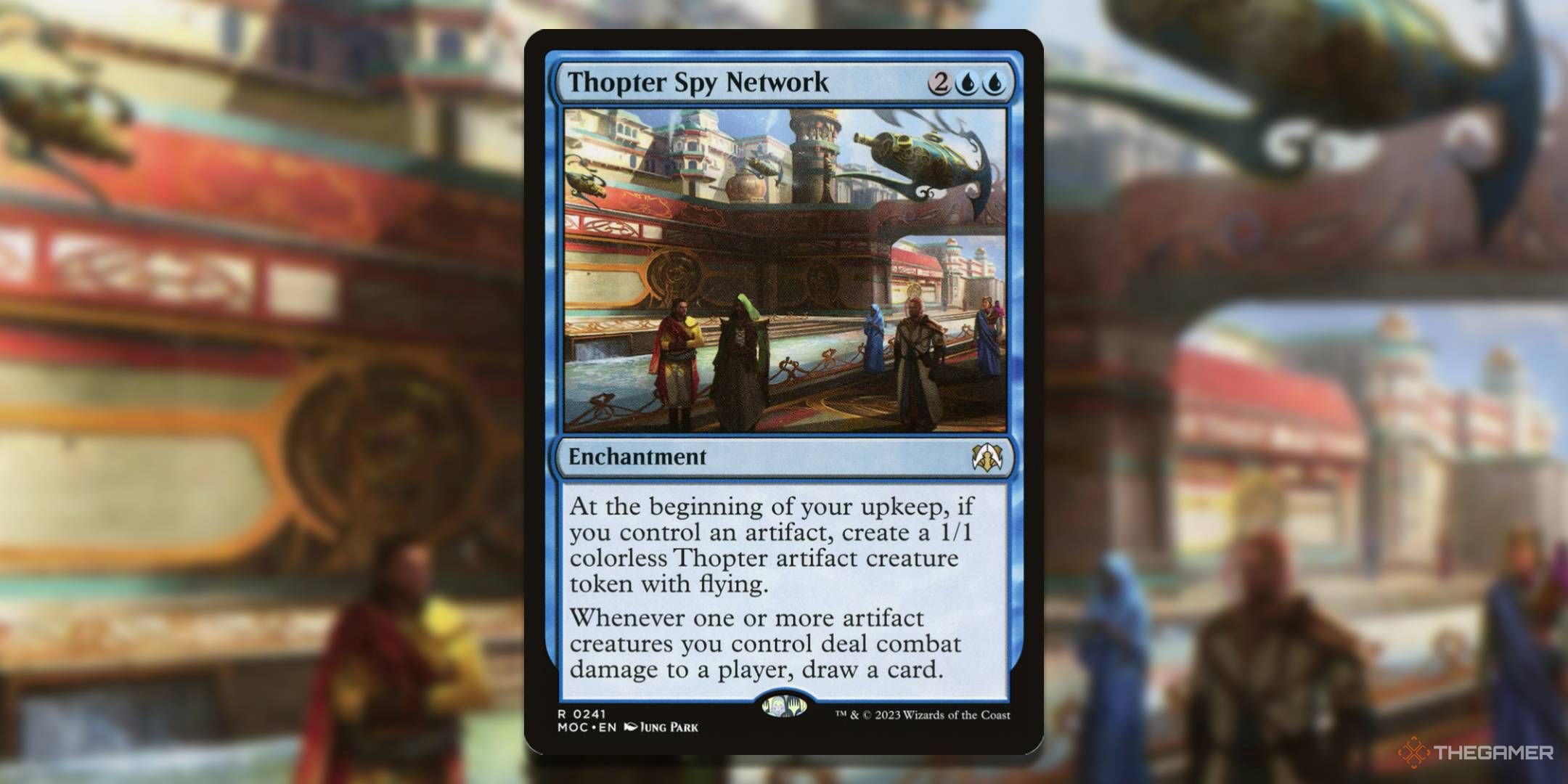




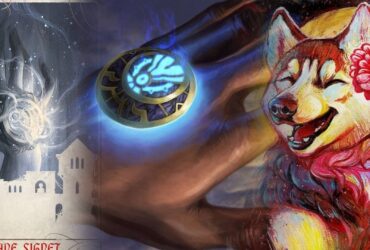
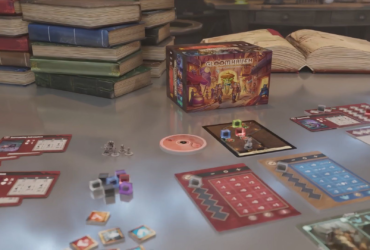
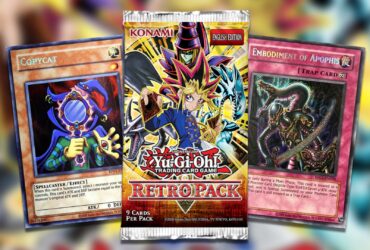


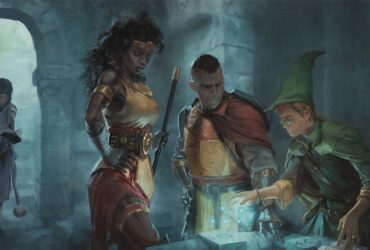
Leave a Reply